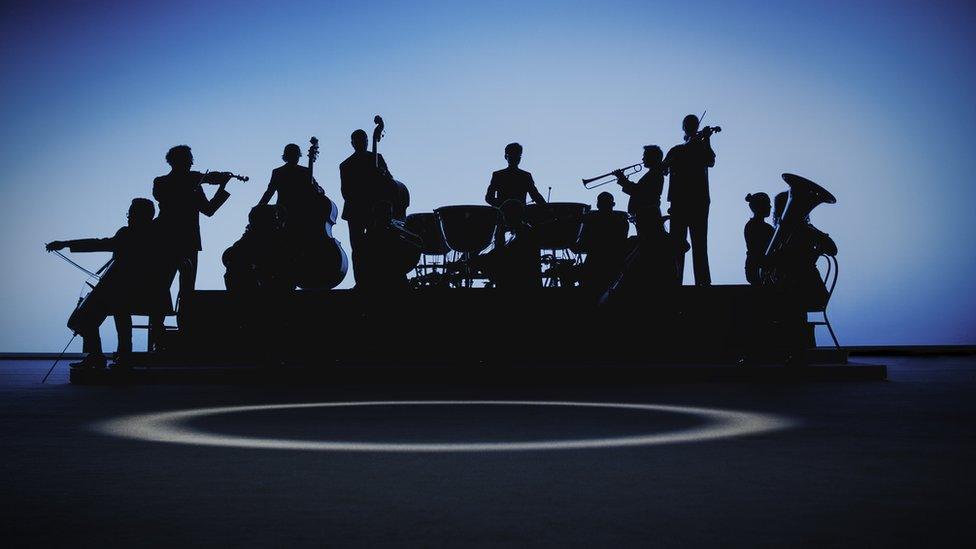Ancient music orchestra marks 50 years of performance
- Published
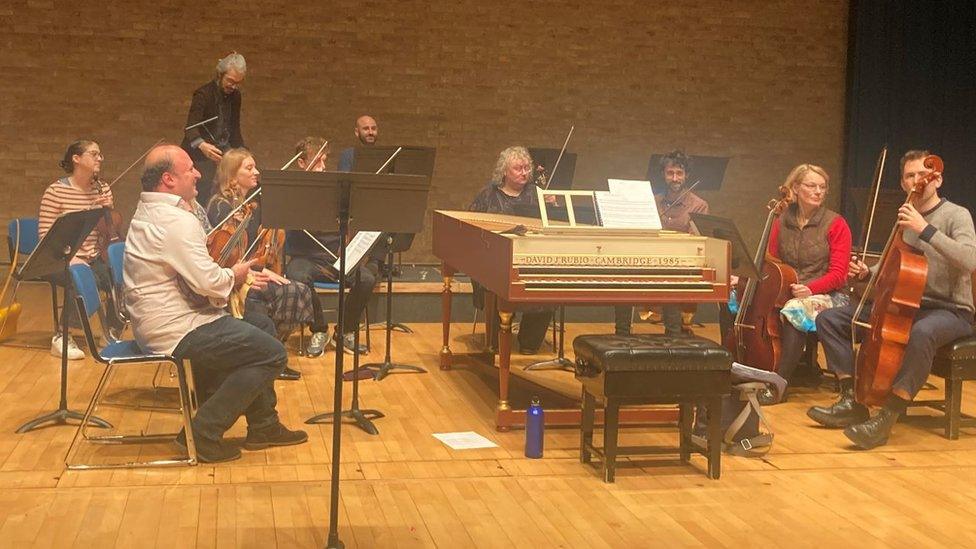
The Academy of Ancient Music in Cambridge, which plays popular and lesser known pieces using original or replica instruments, celebrates 50 years
An orchestra set up to make recordings of "neglected" music using period instruments is marking its 50th year.
The Academy of Ancient Music (AAM) in Cambridge has released 300 albums and has more than a million monthly listeners on streaming platforms.
It said it was "proud" to be a popular period-instrument orchestra.
Working with music colleges and universities across the UK, the orchestra hopes to engage the next generation of period instrumentalists.
An education programme includes scholarships with an "emphasis on intellectual rigour".
The AAM says it "puts great emphasis on crafting concerts that bring new insight to familiar works and to reviving long-lost or forgotten masterpieces".
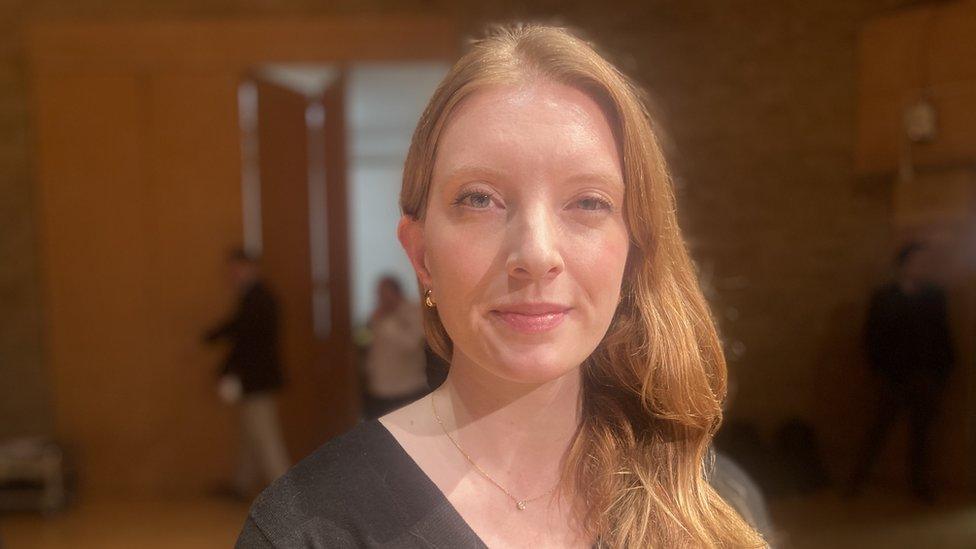
Violinist Gabbi Jones says Mozart's Jupiter symphony one of her favourite pieces to perform
"It's a particular kind of person who is interested in historical performance," said violinist Gabbi Jones.
"We're more intellectually excited about the music, and we're really interested in recreating the sounds that have been lost for hundreds of years and we're now bringing back to life."
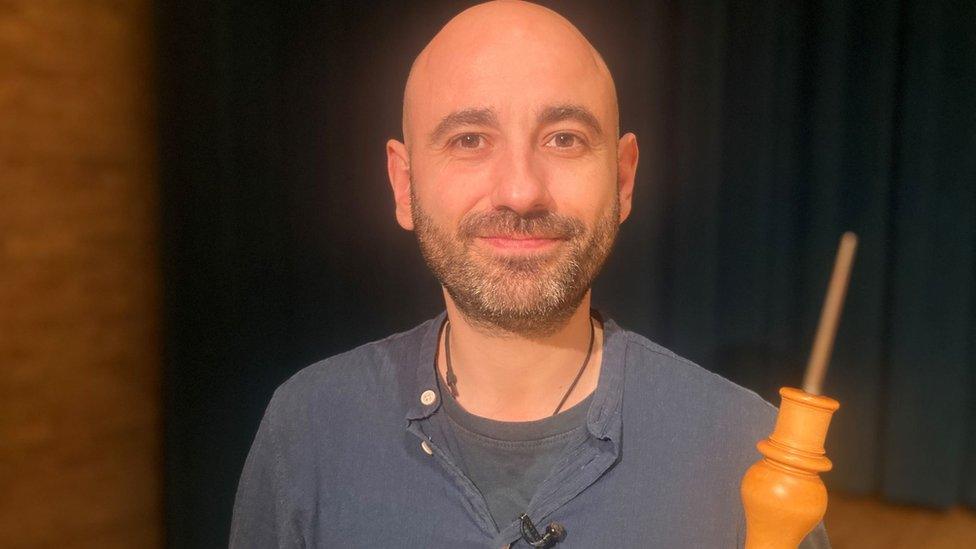
Principal oboe player Leo Duarte is also a researcher and has made editions of numerous 18th Century works
Principal oboist Leo Duarte plays a replica of a cor anglais made in 1800, which, he says, "hasn't got all of the bells and whistles that you have on modern instruments."
He joined AAM, he said, "because it all sounds so different when we play it on these instruments.
"Everything sounds like it did the first time, like it was really new."
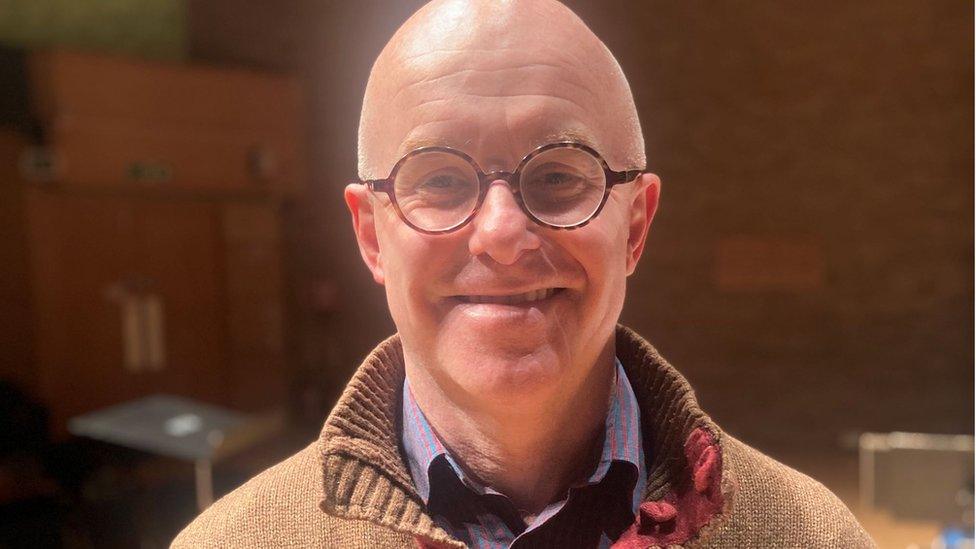
Laurence Cummings said the academy was committed to nurturing audiences, artists and managers of the future
Mr Cummings plays the harpsichord, a forerunner to the modern piano. Music from the 17th and 18th Centuries was what drew him to the instrument, he says.
"The main difference is that the harpsichord plucks the strings rather than hits it with a hammer, so you get a lovely up-in-the-air sort of sound. It takes you back in time immediately," he added.
The AAM specialises in the playing of original instruments, historical copies or actual originals, and "making this old music brim with life".
The players use "as much historical detail as we can in order to make this performances really sing, it's thrilling", said Mr Cummings.
The orchestra hoped to continue with its success over the next 50 years.
"We want to invest in both new research and in new ways to share this knowledge with the world. The quest to rediscover our past is far from done," a spokesperson said.

Follow East of England news on Facebook, external, Instagram, external and X, external. Got a story? Email eastofenglandnews@bbc.co.uk , externalor WhatsApp 0800 169 1830
Related topics
- Published6 October 2023
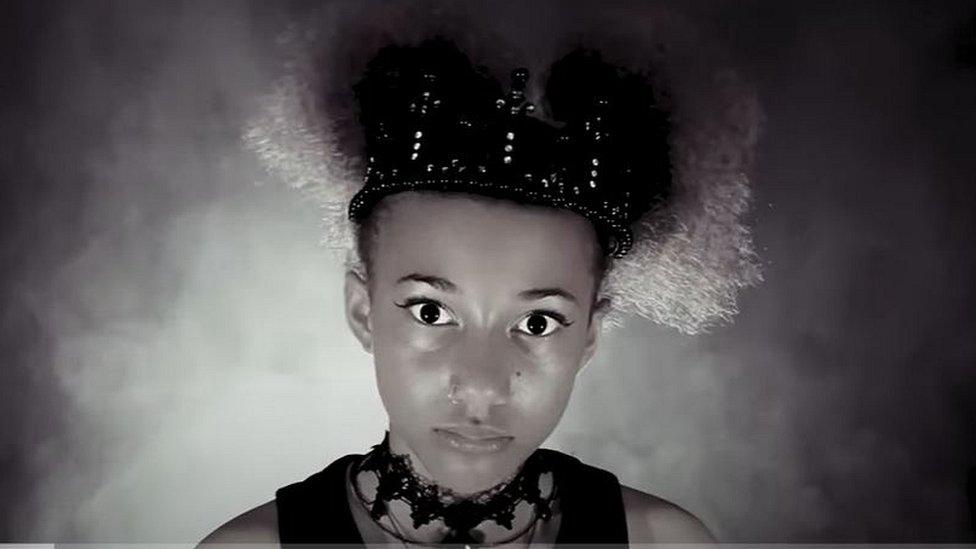
- Published28 December 2020
